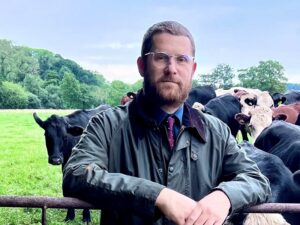 Farmers could face considerably higher tax bills in future following the Chancellor’s Autumn Statement, although details are likely to remain unclear for some time.
Farmers could face considerably higher tax bills in future following the Chancellor’s Autumn Statement, although details are likely to remain unclear for some time.
According to farm accountant Old Mill the statement raised three potential areas of concern: Taxation on farm workers’ cottages, higher taxes for small companies, and closer scrutiny of partners’ profit shares.
“Philip Hammond had a recurring theme of fairness throughout his Autumn Statement,” says Dan Knight, director of rural services at Old Mill. “He addressed the broad themes of taxation on benefits in kind, treatment of small companies, and allocation of partnership profits. All three areas have the potential to impact on farming businesses, but there is not yet enough information to reveal what the extent of that impact might be.”
Rather than taking dramatic action at this stage, farmers would do well to keep a close watch on these areas as more detail becomes available, warns Mr Knight. “When it comes to taxation of employee earnings, the Chancellor announced a consultation on the valuation of benefits in kind, including employer-provided accommodation. Whether this heralds the introduction of taxation on farm cottages remains to be seen, but it’s certainly an area to watch.”
Although he stuck to the previously announced cut in corporation tax rates to 17% from 2020, the Chancellor also revealed an intention to target people who have incorporated their businesses and are thereby benefiting from the lower rates, says Mr Knight.
“The apparent intention is to narrow the tax differential between individuals and incorporated traders, meaning that shareholders could face increased income tax charges when extracting profits,” he adds. “This would be a significant blow for the large number of farmers who operate as limited companies. Anyone considering changing their business structure in the coming months may therefore wish to put plans on hold until the situation is clearer.”
Those who operate as a partnership may not be exempt from tax hikes either. “Philip Hammond wants to ensure the allocation of profits – and therefore the tax paid – is fair,” explains Mr Knight. “I suspect HMRC may start to require more robust and contemporaneous evidence to support how profits are allocated, which would require partners to consider this in a timelier manner and not simply after the year end when reviewing the draft accounts.”
Although all three of these potential changes are likely to be some way off, farmers should liaise closely with their advisers to keep informed of new developments, he adds. “It may be that the threats implied in the Autumn Statement do not come to fruition, but when it comes to any business planning it’s always better to aware of what might lie ahead so that contingencies can be put into place.”
- For more information contact Dan Knight on 01935 709423.




